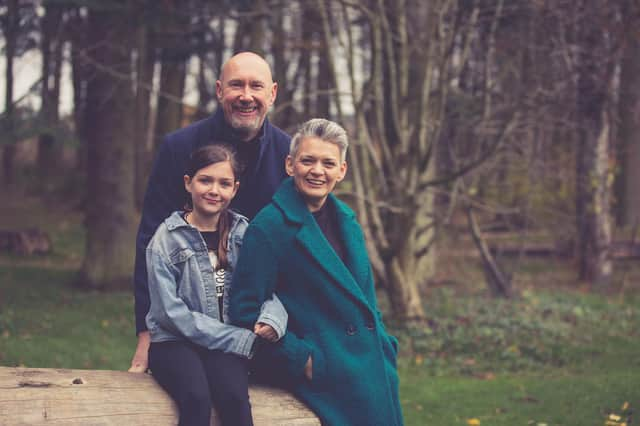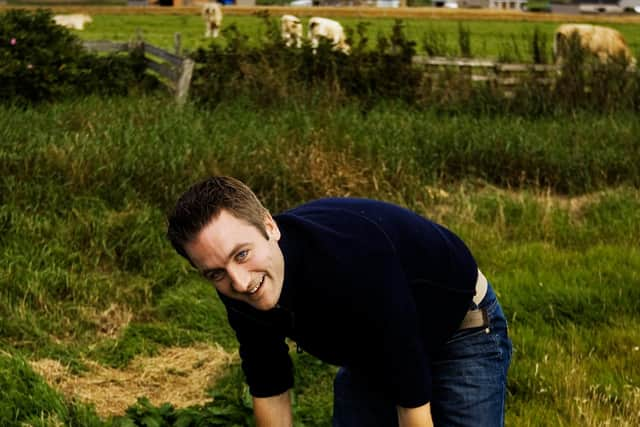'Quite profoundly moving' - Taking part in a genetic study may have saved Shetland woman's life


Little did she imagine that taking part would possibly save her life.
Ms Stewart, 46, who now lives in Aberdeenshire, volunteered in 2015 for Edinburgh University’s Viking Health Study, which aimed to identify some of the genes and variants which increase risk of some common diseases.
Advertisement
Hide AdAdvertisement
Hide AdShe was sent a report of the results and put them away, thinking that was the end of the matter.


But several years later Ms Stewart received a phone call from her GP asking her to take some further tests, which confirmed she has a rare genetic heart condition usually not discovered until it is too late.
‘Long QT syndrome’ can cause palpitations, seizures or blackouts, and can result in sudden death for otherwise healthy people who often do not know they have the condition.
As the condition is genetic, the rest of Ms Stewart’s family were tested, and her nine-year-old daughter Freya was found to have it as well. Ms Stewart's father has the genetic mutation which causes the condition, but does not have it himself.
Ms Stewart credits the diagnosis with possibly “saving her life” as she and her daughter now take daily beta blockers, and have been able to give those around them advice in case they were to collapse as a result of the condition.
Freya's school even raised funds for a defibrillator on site.
“It all sounds a bit dramatic, particularly given that for the first 40 plus years of my life I didn't even know I had this, said Ms Stewart.
"But when you read up about it and you see what could happen if you didn’t know, it’s quite a big thing,
Advertisement
Hide AdAdvertisement
Hide Ad“We're both on daily medication now just to monitor our heart rhythms, and we both get seen regularly by cardiologists for checkups.”
Professor Jim Wilson, Chief Investigator on the study, found Ms Stewart’s story “quite profoundly moving”.
"We do feel that our research will have an impact in the fullness of time, but the fullness of time is usually measured in years, if not decades, as the knowledge we are discovering develops into new treatments," he said.
"But here we had an immediate translation from research into an impact on this person's life and her family. That's uncommon in my research, and it made me so happy. We could see this profound impact on her from the work we do.”
Researchers identified the genetic mutation which causes Long QT in another family in Shetland, and then discovered Ms Stewart’s case after reviewing other study subjects.
Ms Stewart and her daughter’s condition “would never have been found” if she had not taken part in the study, Prof Wilson said, as she is not recently related to the other family so would not have been tested after they were identified.
Ms Stewart contacted the study authors to identify herself from anonymous patient records, in a bid to encourage volunteers to sign up for a new study by the same research group.
Viking II is currently recruiting people with at least two grandparents from Orkney or Shetland at https://www.ed.ac.uk/viking/volunteer-for-viking.
A message from the Editor:
Thank you for reading this article. We're more reliant on your support than ever as the shift in consumer habits brought about by coronavirus impacts our advertisers.
If you haven't already, please consider supporting our trusted, fact-checked journalism by taking out a digital subscription.
Comments
Want to join the conversation? Please or to comment on this article.